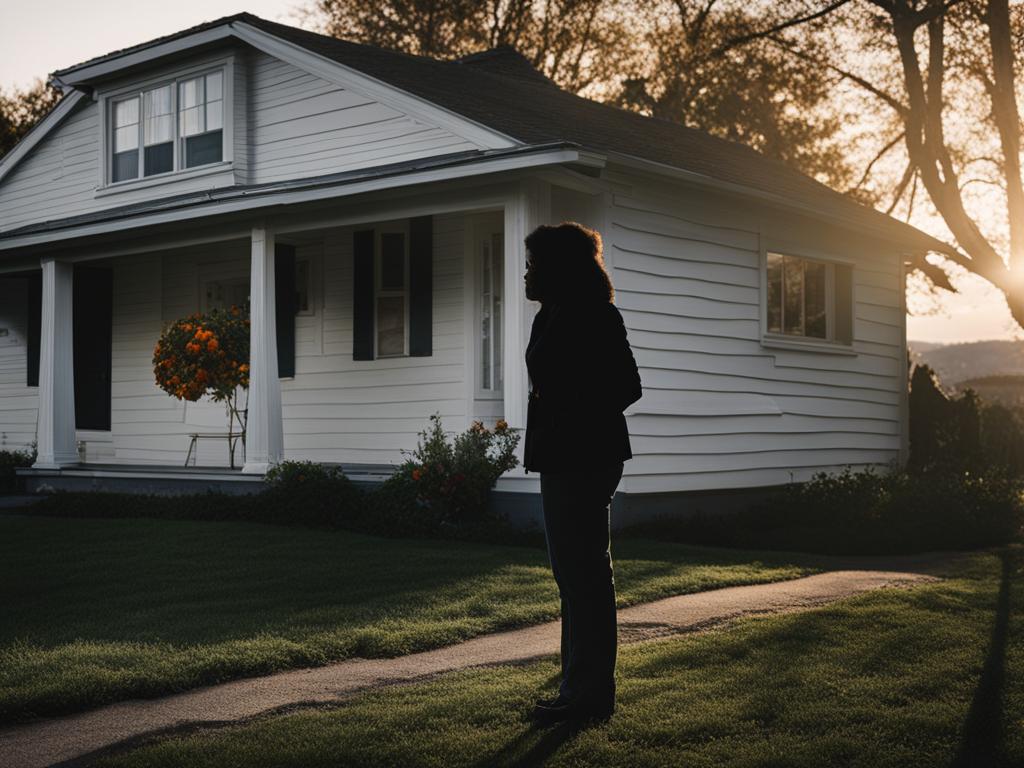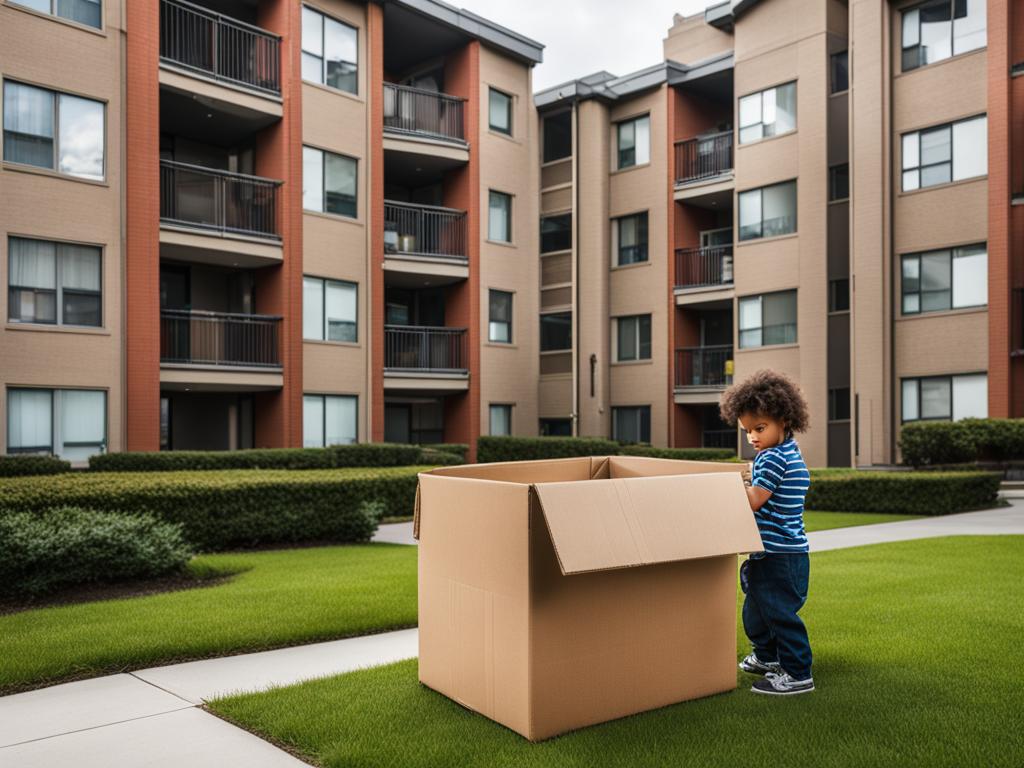Can I Rent an Apartment Before My Divorce is Final? Find Out!
If you’re going through a divorce and considering renting an apartment, you may have questions about the legal implications, financial obligations, and potential impact on child custody arrangements. While each state may have different laws regarding divorce and property division, it is possible to rent an apartment before your divorce is final. However, it’s important to carefully consider the following factors before making a decision:
1. Legal Considerations: Consulting with a family law attorney is crucial to understand your rights and obligations when renting an apartment during divorce proceedings. Lease agreements should be carefully reviewed, taking into account the length of the lease, rent amount, and penalties for breaking the lease.
2. Child Custody Arrangements: Renting an apartment during divorce can potentially impact child custody arrangements. The stability of the child’s living arrangements is considered by the court when determining custody. Communicating with your spouse and developing a temporary parenting plan can help minimize the impact on child custody.
3. Financial Implications: Renting an apartment during divorce may have financial implications. Consider your financial situation and the potential for rent increases when making this decision. It’s also important to assess the division of marital property and your overall financial obligations.
As you navigate the divorce process, it’s crucial to consult with a family law attorney who can provide guidance and ensure your rights are protected. They can help you understand the legal considerations and make informed decisions regarding renting an apartment before your divorce is finalized.
Key Takeaways:
- Renting an apartment before your divorce is final is possible, but it’s important to consider the legal implications.
- Consulting with a family law attorney is crucial to understand your rights and obligations.
- Child custody arrangements may be affected by renting an apartment during divorce.
- Financial implications, such as rent increases and division of marital property, should be taken into account.
- Seeking professional guidance can help you navigate the divorce process and make informed decisions.
Moving Out Before the Divorce is Final: Things to Consider
If you are contemplating the idea of moving out before your divorce is final, it’s important to carefully consider several factors. The decision to move out can have significant implications in your divorce proceedings, particularly in relation to child custody and property settlement. Understanding the potential impact beforehand can help you make an informed choice.
Moving out during divorce can have an effect on your custody case. In some jurisdictions, the court may interpret your decision to move out as abandoning your children or not being committed to co-parenting. This could potentially weaken your position in custody negotiations. Additionally, it’s important to be aware that moving out may be used against you in the property settlement process. Your spouse could argue that by leaving the marital home, you have effectively abandoned your interest in it.
Before making the decision to move out, it’s crucial to weigh the potential downsides. Consult with a family law attorney to understand the specific laws and regulations in your jurisdiction. They can provide guidance based on your individual circumstances and help you navigate any legal complexities that may arise.
“Moving out before the divorce is final can have far-reaching consequences. It’s essential to weigh the potential impact on child custody arrangements and the property settlement process before making a decision.”
| Factors to Consider | Impact |
|---|---|
| Child Custody | Moving out may be viewed as abandoning your children or not being committed to co-parenting. |
| Property Settlement | Your spouse may argue that you abandoned your interest in the marital property. |
Ultimately, the decision to move out before your divorce is final is a personal one that should be made after careful consideration of all the relevant factors. By consulting with a family law attorney, you can gain a better understanding of the potential implications and make an informed choice that aligns with your individual circumstances and goals.
Renting an Apartment During Divorce: Legal Considerations
When it comes to renting an apartment during divorce proceedings, there are several important legal considerations to keep in mind. These considerations include custody arrangements, the division of marital property, and the financial implications of renting. Understanding the legal landscape and consulting with a family law attorney can help ensure that you make informed decisions throughout the process.
Custody Arrangements and Renting
One major consideration when renting an apartment during divorce is how it may impact custody arrangements. Courts often prioritize the stability and suitability of a child’s living arrangements when making custody decisions. Therefore, it’s crucial to consider the location, size, and overall suitability of the apartment in relation to the best interests of the child. Additionally, developing a temporary parenting plan with your spouse can help minimize any potential disruptions caused by the change in living arrangements.
Division of Marital Property and Renting
Another important legal consideration is how renting an apartment may affect the division of marital property. In some cases, the marital home may be considered a joint asset and subject to division during the divorce process. Renting an apartment can impact this division, as it may impact the overall value of the marital property and potentially affect any settlements or agreements reached regarding the division of assets. It’s essential to consult with a family law attorney to understand your rights and obligations regarding the division of marital property.
Financial Implications of Renting During Divorce
Finally, renting an apartment during divorce can have financial implications that should be carefully considered. Lease agreements should be thoroughly reviewed, paying close attention to the length of the lease, rental amount, and penalties for breaking the lease. It’s important to assess whether renting an apartment is a financially viable option based on your individual circumstances. Understanding the potential costs and obligations associated with renting can help you make an informed decision that aligns with your financial goals.
| Legal Considerations for Renting During Divorce | Custody Arrangements and Renting | Division of Marital Property and Renting | Financial Implications of Renting During Divorce |
|---|---|---|---|
| Stability of living arrangements for children | Location, size, and suitability of the apartment | Impact on the division of marital property | Reviewing lease agreements for costs and obligations |
| Temporary parenting plan development | Minimizing disruptions caused by the change in living arrangements | Understanding rights and obligations regarding property division | Financial viability and alignment with goals |

“Renting an apartment during divorce requires careful consideration of custody arrangements, division of marital property, and financial implications. It’s important to prioritize the stability and suitability of living arrangements for children and develop a temporary parenting plan. Understanding your rights and obligations regarding the division of marital property is crucial. Additionally, thoroughly reviewing lease agreements and assessing the financial viability of renting is essential to make informed decisions.”
Renting vs. Buying After Divorce: Which Option is Right for You?
After a divorce, one important decision to make is whether to rent or buy a home. Each option has its own benefits and financial considerations. Understanding the advantages of renting after divorce and the benefits of buying can help you make an informed decision that suits your needs.
Benefits of Renting After Divorce
Renting a home after divorce offers several advantages:
- Flexibility: Renting allows for more flexibility in terms of location and living arrangements. If you’re unsure about your long-term plans or need time to adjust after the divorce, renting offers the freedom to explore different options.
- Lower Financial Commitment: Renting typically requires a smaller upfront financial commitment compared to buying a home. You won’t have to worry about mortgage payments, property taxes, or maintenance costs.
Benefits of Buying After Divorce
On the other hand, buying a home after divorce has its own advantages:
- Stability: Buying a home provides stability and a sense of ownership. It can be particularly beneficial if you have children and want to provide them with a stable living environment.
- Potential for Equity: When you buy a home, you have the opportunity to build equity over time. As you make mortgage payments, the value of your home may increase, allowing you to benefit financially in the long run.
Financial Considerations
When considering whether to rent or buy after divorce, it’s important to take your financial situation into account:
- Renting: Renting generally requires a security deposit and monthly rent payments. You may also need to budget for utilities and renter’s insurance.
- Buying: Buying a home involves upfront costs such as a down payment, closing costs, and ongoing expenses like mortgage payments, property taxes, and homeowners insurance.
Assessing your current financial stability and long-term goals can help you determine whether renting or buying is the right choice for you after divorce.
| Renting | Buying | |
|---|---|---|
| Flexibility | Offers more flexibility in terms of location and living arrangements | Provides stability and a sense of ownership |
| Financial Commitment | Requires a smaller upfront financial commitment | Involves upfront costs and ongoing expenses |
| Potential for Equity | – | Offers the opportunity to build equity over time |
Renting a Home During Divorce: Pros and Cons
Renting a home during divorce can provide various benefits and drawbacks that individuals should consider when making housing decisions. Understanding the advantages and disadvantages can help individuals navigate this challenging time with greater clarity and informed decision-making.
Benefits of Renting During Divorce
- Flexibility: Renting offers flexibility, allowing individuals to easily move and adjust their living arrangements as needed throughout the divorce process.
- Lower Financial Commitment: Renting typically involves a lower financial commitment compared to buying a home. This can be beneficial during divorce proceedings when financial resources may be limited or uncertain.
- Avoidance of Maintenance Costs and Taxes: Renting a home means that the responsibility for maintenance costs and property taxes typically falls on the landlord, providing relief from additional financial burdens during an already challenging time.
Disadvantages of Renting During Divorce
- Lack of Potential Equity: Renting does not offer the opportunity to build equity in a property, which could be a disadvantage for individuals looking to invest in a long-term asset.
- Stability: While renting provides flexibility, it may not provide the same level of stability as owning a home. Individuals who prioritize long-term stability may find renting less appealing.
- Financial Implications: Renting a home during divorce could have financial implications, such as potential rent increases or changes in living arrangements that may impact child custody considerations or financial obligations.
Considering these pros and cons can help individuals make more informed choices when deciding whether to rent a home during divorce. It is essential to weigh personal circumstances, financial considerations, and long-term goals to determine the most suitable housing option.
| Pros of Renting During Divorce | Cons of Renting During Divorce |
|---|---|
| Flexibility | Lack of Potential Equity |
| Lower Financial Commitment | Stability |
| Avoidance of Maintenance Costs and Taxes | Financial Implications |
In summary, renting a home during divorce provides flexibility, lower financial commitment, and relief from maintenance costs and taxes. However, it may lack the potential for building equity and long-term stability. Individuals should carefully consider their unique circumstances and priorities before deciding whether renting is the best housing option during divorce.

Buying a Home During Divorce: Pros and Cons
Buying a home during divorce comes with its share of advantages and disadvantages. It is important to carefully consider the financial implications and stability before making a decision. Here are some key points to keep in mind:
The Benefits of Buying During Divorce
- Building Equity: One of the major benefits of buying a home during divorce is the potential to build equity over time. As you make mortgage payments, you are gradually increasing your ownership in the property.
- Potential Tax Deductions: Homeownership can provide opportunities for tax deductions, such as deducting mortgage interest and property taxes. These deductions can help reduce your overall tax liability.
- Long-Term Stability: Buying a home can provide a sense of stability, especially if you have children. It offers the reassurance of having a permanent residence and the ability to establish roots in a community.
The Disadvantages of Buying During Divorce
- Financial Implications: Buying a home requires a significant financial commitment. It may involve taking on a mortgage, which can add to your monthly expenses. You will also need to consider additional costs such as property taxes, insurance, and maintenance.
- Potential for Fluctuations in Home Values: The real estate market can be unpredictable, and the value of your home may fluctuate. This can impact your financial situation, especially if you need to sell the property in the future.
When deciding whether to buy a home during divorce, it is crucial to assess your financial situation, evaluate the stability of your income, and consider the long-term implications. Consulting with a financial advisor or real estate professional can provide valuable insights to help you make an informed decision.

Tips for Buying a Home After Divorce
Buying a home after divorce is a significant decision that requires careful planning and consideration. Here are some essential tips to keep in mind during the home-buying process:
Gather a Support Team
Before you start searching for a new home, it’s important to assemble a support team that can guide you through the process. This team may include a real estate agent, a mortgage lender, and a family law attorney. A real estate agent can help you find suitable properties and negotiate favorable terms, while a mortgage lender can assist you with securing a pre-approval letter and determining your budget. Lastly, consulting with a family law attorney is crucial to understand any legal implications and ensure that the home purchase aligns with your divorce settlement.
Prepare for the Financial Aspect
One of the first steps in buying a home after divorce is evaluating your financial situation. Determine how much you can afford to spend on a down payment, as well as the ongoing costs of homeownership such as mortgage payments, property taxes, insurance, and maintenance. It’s important to have a clear understanding of your financial capabilities to avoid any future financial strain.
Consider Other Costs
In addition to the purchase price and ongoing expenses, there are several other costs to consider when buying a home after divorce. These may include closing costs, which typically range from 2% to 5% of the property’s purchase price. Additionally, you may need to budget for inspections, appraisals, moving expenses, and potential renovations or furnishings for your new home. Taking these costs into account ensures that you have a comprehensive understanding of the financial commitment involved in purchasing a home.
By following these tips and seeking professional guidance, you can navigate the home-buying process after divorce with confidence. It’s important to carefully evaluate your options and make an informed decision that aligns with your financial situation and post-divorce goals.

Renting or Buying: Considering the Marital Home
During a divorce, the fate of the marital home is an important decision for both parties involved. Dividing the marital property, including the home, is typically part of the divorce process. There are different options to consider, such as selling the marital home and dividing the proceeds or allowing one spouse to remain in the home until certain conditions are met.
To better understand the implications of these choices, let’s take a closer look at the options:
Option 1: Selling the Marital Home
One common solution is selling the marital home and dividing the proceeds between the spouses. This option provides a clean break and allows both parties to move forward with their lives independently. However, it is crucial to consult with a family law attorney to ensure a fair distribution of the proceeds and to address any financial obligations associated with the home.
Option 2: Allowing One Spouse to Remain in the Home
In some cases, divorcing couples may consider allowing one spouse to remain in the marital home until certain conditions are met, such as the children reaching a certain age or completing their education. This arrangement can provide stability for the children and allow for a smoother transition during the divorce process. However, it is essential to establish clear guidelines and financial responsibilities to avoid potential conflicts in the future.
| Advantages of Selling the Marital Home | Advantages of Allowing One Spouse to Remain |
|---|---|
| 1. Provides a clean break. | 1. Maintains stability for the children. |
| 2. Divides the proceeds between both parties. | 2. Minimizes disruption during the divorce process. |
| 3. Eliminates shared financial responsibilities. | 3. Allows time for the real estate market to improve, if applicable. |
Ultimately, the decision regarding the marital home will depend on various factors, including financial considerations, the well-being of the children, and the desires of both parties. It is essential to consult with a family law attorney to understand the legal implications and to ensure a fair and equitable outcome.

Renting an Apartment During Divorce: Impact on Child Custody
Renting an apartment during divorce can have implications for child custody arrangements. The stability of the child’s living arrangements is a significant factor considered by the court when determining custody. The court aims to prioritize the child’s best interests, including providing a stable and consistent home environment.
Co-parenting and maintaining a stable living situation are crucial during the divorce process. Renting an apartment can be seen as a temporary solution to ensure stability for both the parent and the child. It allows the parent to establish a separate living space while still being able to fulfill their parenting responsibilities.
Communicating with your spouse and developing a temporary parenting plan can help minimize the impact on child custody. It is essential to consider the child’s routine, school, and extracurricular activities when selecting an apartment location. By maintaining a level of consistency and continuity, you can demonstrate your commitment to co-parenting and providing a stable environment for your child.
Table: Factors to Consider When Renting an Apartment During Divorce
| Factors | Considerations |
|---|---|
| Location | Choose an apartment close to the child’s school, activities, and the other parent’s residence for easier co-parenting logistics. |
| Stability | Select an apartment with a lease that provides stability and allows for a consistent living environment during the divorce process. |
| Financial Considerations | Ensure the rental cost aligns with your budget and any temporary changes in income due to the divorce process. |
During the divorce proceedings, it is crucial to seek guidance from a family law attorney to understand the legal implications and ensure that your rights and the best interests of your child are protected.

Conclusion
When it comes to renting or buying after a divorce, there are important considerations to keep in mind. Renting an apartment before your divorce is final is possible, but it’s crucial to consult with a family law attorney to understand the legal implications. Renting offers flexibility and a lower financial commitment, but it may impact child custody arrangements. On the other hand, buying a home after divorce provides stability and the potential for building equity.
Factors such as your financial situation, legal considerations, and personal preferences should guide your decision. If you choose to rent during divorce, carefully review lease agreements and be aware of any penalties for breaking the lease. If you decide to buy a home, prepare by engaging a real estate agent and securing a pre-approval letter from a lender.
Remember, each case is unique, and it’s important to consider the specific circumstances of your divorce. Consulting with a family law attorney can provide you with the guidance and support you need to navigate the divorce process and make informed decisions about renting or buying a home after divorce.
FAQ
Can I rent an apartment before my divorce is final?
Yes, it is possible to rent an apartment before your divorce is final. However, there are legal considerations to keep in mind. Each state may have different laws regarding divorce and property division. Consulting with a family law attorney is important to understand your rights and obligations.
What factors should I consider if I want to move out before the divorce is final?
Moving out before the divorce is final can impact your custody case, as the court may view it as abandoning your children or not being committed to co-parenting. It could also affect the property settlement, as your spouse may argue that you abandoned the property. It is important to weigh the potential downsides before making a decision.
What legal implications should I consider when renting an apartment during divorce?
Renting an apartment during divorce has legal implications. Lease agreements should be carefully reviewed, considering the length of the lease, rent amount, and penalties for breaking the lease. Child custody arrangements may be affected by renting an apartment, as the stability of the child’s living arrangements is considered. The division of marital property and financial obligations should also be taken into account.
Should I rent or buy a home after my divorce?
The decision to rent or buy a home after divorce depends on various factors. Renting offers the advantage of no maintenance costs or taxes, flexibility, and lower financial commitment. Buying a home allows for building equity, tax deductions, and stability. Factors such as financial situation, housing market, and personal preferences should be considered to choose the best option.
What are the pros and cons of renting a home during divorce?
Renting a home during divorce has its advantages, such as avoiding maintenance costs and taxes, minimal financial commitment, and flexibility. However, it lacks the potential for building equity and may not provide long-term stability. Financial implications and the potential for rent increases should also be taken into account.
What are the pros and cons of buying a home during divorce?
Buying a home during divorce offers advantages such as building equity, potential tax deductions, and long-term stability. However, it comes with the responsibility of maintenance costs and potential fluctuations in home values. Financial considerations and the ability to make a down payment should be evaluated when deciding to buy a home during divorce.
What tips should I consider when buying a home after divorce?
Buying a home after divorce requires careful planning. Engaging a real estate agent and obtaining a pre-approval letter from a lender are essential steps. Having a down payment ready and factoring in other costs like closing costs and potential appliance and furniture purchases is important. Proper financial preparation can make the home-buying process smoother after divorce.
What should I do with the marital home during divorce?
The marital home is typically considered marital property and needs to be divided during a divorce. Selling the marital home is a common solution, allowing for the fair division of proceeds. However, other arrangements, such as allowing one spouse to remain in the home until children reach a certain age, may also be considered. Each case is unique, and consulting with a family law attorney is crucial to understand the options and implications.
How does renting an apartment during divorce impact child custody?
Renting an apartment during divorce can impact child custody arrangements. The stability of the child’s living arrangements is a factor considered by the court when determining custody. Communicating with your spouse and developing a temporary parenting plan can help minimize the impact on child custody. Consulting with a family law attorney is important to understand the legal implications.
What should I consider when renting or buying after divorce?
Considerations when renting or buying after divorce include financial situation, legal considerations, and personal preferences. Renting offers flexibility and lower financial commitment, while buying provides stability and potential for equity. Consulting with a family law attorney is important to navigate the divorce process and make informed decisions.

